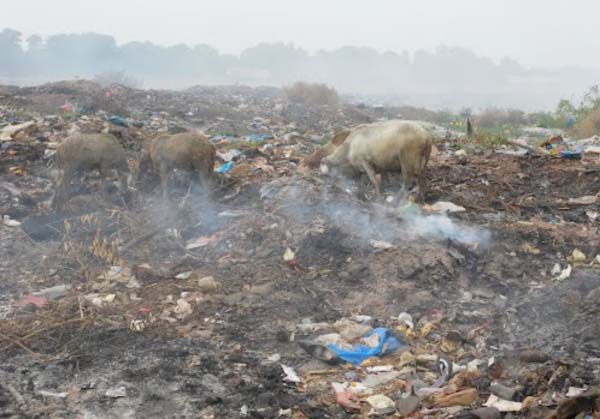
The legal research report on the International Disaster Law Programme of The Gambia was developed by Bandirabeh Consultancy Company over a two-year study period, on legal preparedness for facilitating and regulating international disaster assistance.
The report has been commissioned by The Gambia Red Cross Society (GRCS) with support from the International Federation of Red Cross and Red Crescent Societies (IFRC), in collaboration with the National Disaster Management Agency (NDMA).
The report analyses the existing legal and policy frameworks for disaster management and response in The Gambia, focusing on the facilitation and regulation of international disaster assistance.
“The report also provides an assessment of strengths and gaps and provides recommendations for strengthening legal preparedness for disasters in Gambia,” said Essa Khan, in his presentation of the report on behalf of the Bandirabeh Associates Consultancy Company.
The International Disaster Law Programme was introduced as a result of reports over the last decades providing revealing evidence of the increasing numbers and impact of natural disasters globally.
As a result, there has been an upsurge in the need for international disaster assistance, either between neighbouring states or from the international community.
On the other hand, the increase in the number and variety of international actors, who may be available to provide assistance in major disaster operations, is making the task of facilitating and regulating international humanitarian assistance more complicated for the governments of affected or transit states.
Some of the legal challenges faced by the affected or transit states during response of international magnitude include: Coordination of international and regional disaster response, customs procedures, obtaining of visa and work permits, recognition of certificates of specialized personnel (in particular, medical personnel) and quality of relief items and services.
To help address this situation in The Gambia, GRCS in collaboration with NDMA facilitated the conduct of a legal research, with technical and expert support from the IFRC, to identify the gaps and map out recommendations for the disaster law programme in The Gambia, which was launched yesterday.
In his launching statement, Deputy Executive Director of National Disaster Management Agency, Sering Modou Joof, said the Gambia Red Cross Society has been at the forefront of responding to disasters as auxiliary to public authorities in the humanitarian field.
He added that in June 2014, GRCS in collaboration with NDMA initiated the process of dialogue with the relevant government stakeholders, to improve awareness and knowledge on disaster management and strengthen laws and procedures for effective response.
He explained that GRCS and NDMA with support from IFRC successfully launched a disaster law project.
He said it was meant to increase awareness on the role of laws in disaster response operations among parliamentarians, policymakers and other governmental and non-governmental actors.
Mr Joof added that the national legal study on existing disaster laws in The Gambia was conducted, with the objective of informing the revision of the 2008 National Disaster Management Act on the basis of the international guidelines for the domestic facilitation and regulation of international relief and initial recovery assistance.
Fatou Gaye, acting Secretary General of GRCS, said that over the last ten years, The Gambia has been confronted with various types of disasters, ranging from droughts, to storms and floods of greater intensity, food insecurity, and disease outbreak occurring in new areas and affecting more communities.
“The Gambia Red Cross Society has been at the forefront of responding to these disasters as auxiliary to public authorities in the humanitarian field.”
Momodou Lamin Faye, Regional Representative of the International Federation of Red Cross Dakar Office, in his remarks expressed delight for being part of the launch of the first-ever report on international disaster response rules and regulations in The Gambia.
He noted that the number of disasters has almost doubled worldwide over the years.
As disasters have no boundaries, he said, the African continent was not spared from disasters causing the communities to endure intensified drought, flooding and epidemics, among others.
“The impacts are even greater in situations where the disaster affected state lacks the legal and institutional facilities to cope with the humanitarian needs to the affected communities, at which stage international cooperation become essential.”
“Recent disasters have shown that no state can reasonably consider itself immune from the occasional need for international assistance. This was demonstrated when the 2010 and 2011 earthquakes hit New Zealand and Japan.”
“Given the current process led by the Government of The Gambia to review the NDMA Act of 2008, the legal research recommends that it is the right time for the update of the NDMA Act 2008 in light of the International Disaster Response Law (IDRL) Guidelines for better preparation and recovery from disasters in The Gambia.”
The IDRL legal research document on The Gambia follows similar research reports conducted in Uganda, Botswana and Malawi under the international disaster law programme of the International Federation of Red Cross and Red Crescent Societies in collaboration with National Societies and Disaster Management/Civil Protection Agencies of governments.
Gibriel Bah of Bandirabeh Associates Consultancy firm made a presentation on the legal aspects of the report. The presenters included Modou Yaya Jallow.


